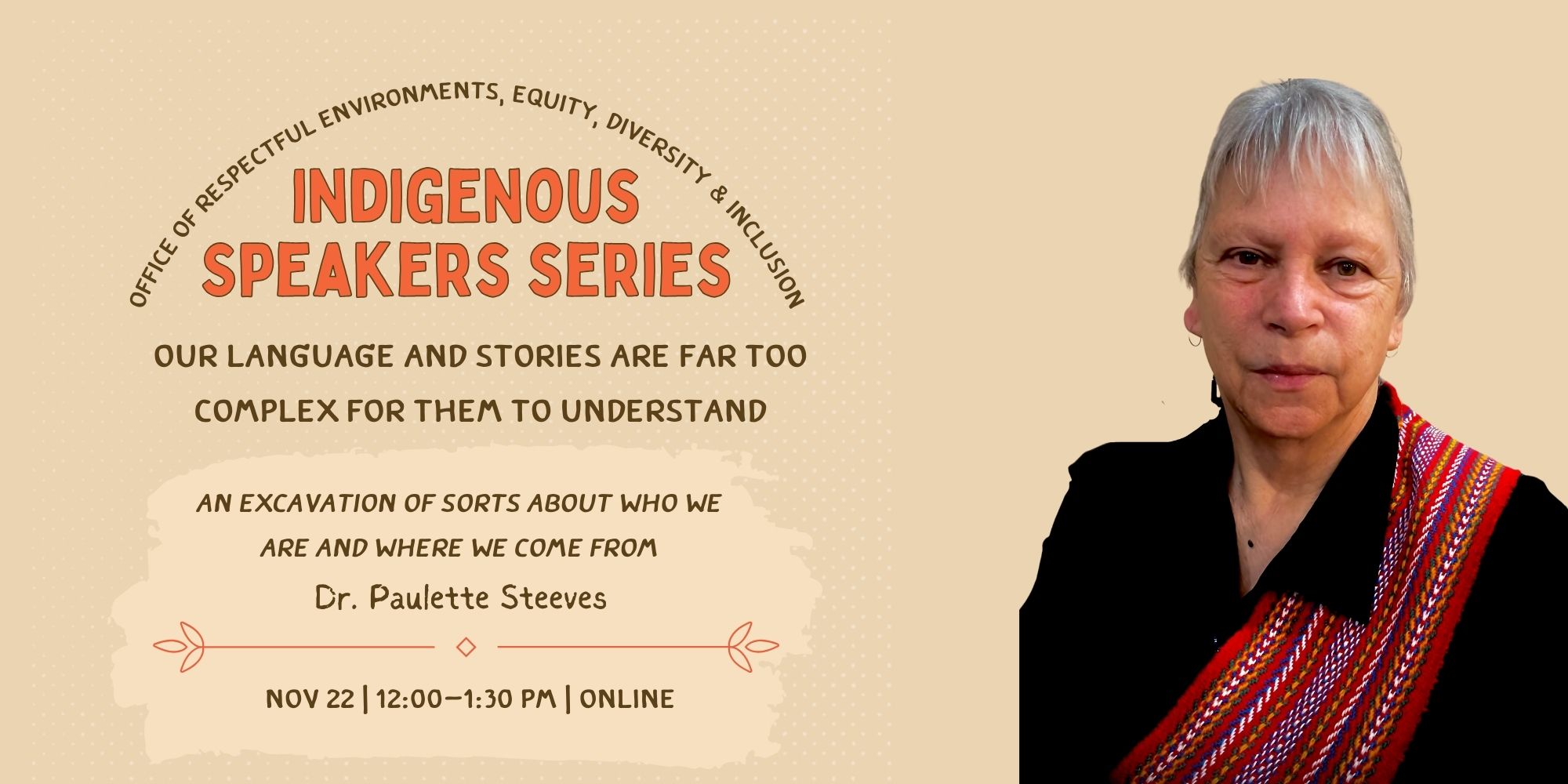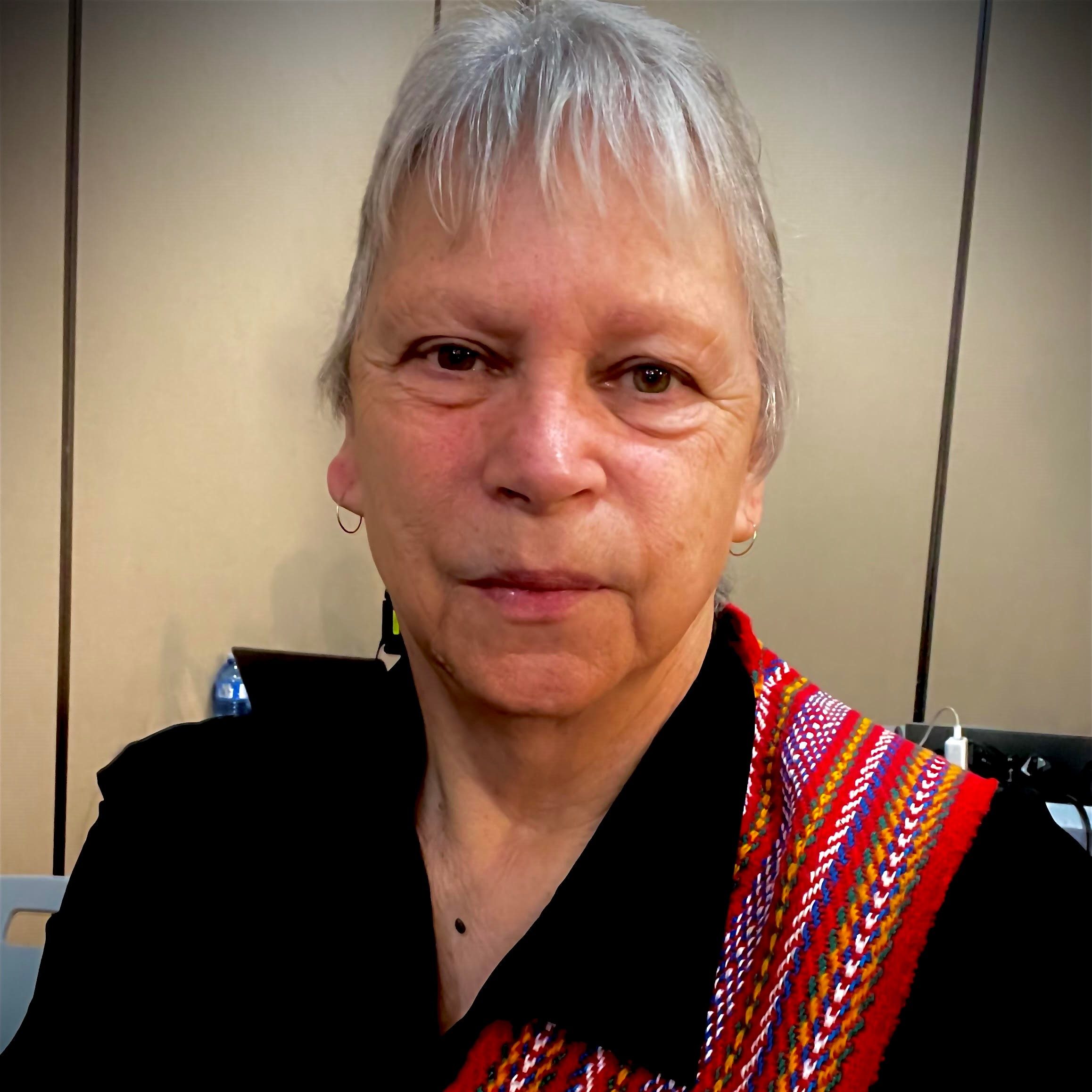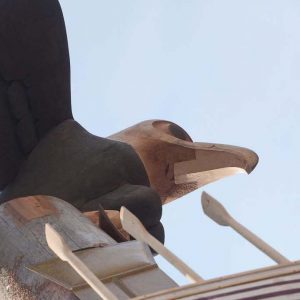Thank you for joining us on Wednesday, November 22nd, 2023 from 12:00 pm – 1:30 pm (PST), for “Our Language and Stories are Far Too Complex for Them to Understand: An Excavation of Sorts About Who We Are and Where We Come From.” In this Indigenous Speaker Series session, we had a conversation with Dr. Paulette Steeves, an Indigenous mother and scholar, and author of The Indigenous Paleolithic of the Western Hemisphere (featured in this CBC Ideas Radio interview). We learnt about the rewriting of Indigenous histories, framed through Indigenous knowledge. This talk underscored the importance of reclaiming the way that we understand Indigenous Peoples’ identity, sense of belonging, and place, and the recovery of all things that were either stolen or dispossessed from Indigenous Peoples – family, language, lands, humanities, ceremonies, and safety. It emphasized the need to come together and work towards decolonizing our minds, and experience the liberation of our hearts, and to define the reconciled balance between the past and present.

Join us virtually on Wednesday, November 22nd, 2023 from 12:00 pm – 1:30 pm (PST), for “Our Language and Stories are Far Too Complex for Them to Understand: An Excavation of Sorts About Who We Are and Where We Come From.” This virtual event is presented by the Indigenous Speakers Series.
Speaker

Dr. Paulette Steeves, PhD, Indigenous Archeologist – Cree/Métis Ancestry
Dr. Paulette was born in Whitehorse, Yukon and she grew up in Lillooet, British Columbia, Canada. She is an Associate Professor in Sociology/Anthropology, Geography/Geology, and Land Stewardship at Algoma University in Sault Ste. Marie, ON. She is a Canada Research Chair in Indigenous History, Healing and Reconciliation. Her research focus is on the Pleistocene history of the Western Hemisphere, as well as reclaiming and rewriting Indigenous histories, and healing and reconciliation. In her research, she argues that Indigenous peoples were present in the Western Hemisphere as early as 100000 years ago, and possibly much earlier. Dr. Steeves argues that counter stories to Western narratives of Indigenous histories address issues that remain critical to Indigenous people and their understanding of sovereignty, self-determination, and healing and reconciliation. She has stated that rewriting and unerasing Indigenous histories become a part of healing and reconciliation to transform public consciousness, and to confront and challenge racism. Long-standing academic denial of the deep Indigenous past fosters racism and discrimination among the general or Settler population. Rewriting Indigenous histories, framed through Indigenous knowledge, will create discussions that counter racism and discrimination. Her award-winning book The Indigenous Paleolithic of the Western Hemisphere was published on July 1st, 2021.
Moderator

Derek K Thompson – Thlaapkiituup, Director, Indigenous Engagement
Description
Written by Derek K Thompson – Thlaapkiituup, Director, Indigenous Engagement
Dr. Paulette Steeves is my hero. She’s my hero because of her depth of vulnerability and awareness about who she is as an Indigenous mother and scholar, and because she wrote this amazing book: The Indigenous Paleolithic of the Western Hemisphere (featured in the Ideas interview – The Old Stone Age in the Western Hemisphere). As usual, I was up early one morning and listening to the CBC radio program, Ideas, and Nahlah Ayed was speaking with Dr. Steeves about her book.
Near the conclusion of the interview Nahlah Ayed asked, “What effect have you observed in Indigenous communities when there are stories that reinforce the idea that there’s been a much longer human history in this hemisphere than what we’re told?”
Dr. Steeves’ reply, brilliant and telling, “The existence of our stories on the land, I call archaeological sites stories on the land, that are older than 12000 years, in our ancestral connections between ancient first people and contemporary Indigenous people, are empowering to Indigenous people. The existence of hundreds of archaeological sites in the Pleistocene creates a dialogue from which Indigenous people can challenge erasures of their histories. It foregrounds their Indigenous identities and their links to the land, and it empowers them in seeking justice. To allow that Indigenous people have been present in the Western Hemisphere for a much greater time is to support ownership of the past and the present, their lands and material heritage, to accept that Indigenous people have been in the Western Hemisphere for over 60000 years, and possibly over 130000 years, is to put them on equal footing with some areas of the so-called Old World.”
We seek out equal footing with the old world, and equity within this era of reckoning with the truth, reconciling for the future, and a present-day excavation of who we are and where we come from, as Indigenous peoples and as Canadians. This talk is about the reclaiming the way that we understand our identity, sense of belonging, and place, and it’s about the recovery of all things that were either stolen or dispossessed from us – family, language, lands, humanities, ceremonies, and safety. This talk is also about the need for us to come together and work towards decolonizing our minds, and experience the liberation of our hearts, and to define the reconciled balance between the past and present.
Topic: Our Language and Stories are Far Too Complex for Them to Understand: An Excavation of Sorts About Who We Are and Where We Come From
Date: Wednesday, November 222nd, 2023
Time: 12:00 – 1:30 pm (PST)
What Will I Learn?
You will learn about a unique Indigenous perspective of archaeology within the context of truth, reconciliation and redress.

Continue Learning
“The time to make things happen is now. The time to seek out our individual and shared power is now.”
Learn more about REDI’s Indigenous Initiatives here
Discover more about REDI’s Indigenous Initiatives Speakers Series here
Find REDI’s Indigenous-Specific Resources here